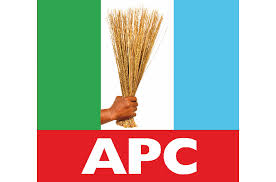The All Progressives Congress, APC, has blasted reports of The Economist Magazine and HSBC on the 2019 general elections which predicted electoral defeat of President Muhammadu Buhari.
In similar reports, The Economist Intelligence Unit, EIU, the research unit of The Economist Magazine and HSBC, a multinational banking and financial services company, stated that a second term for President Buhari would greatly stunt the economic development of the country, among other predictions on the Nigerian nation.
In a statement Wednesday in Abuja, Yekini Nabena, acting National Publicity Secretary of the APC, queried the rationale behind the reports, urging the two bodies to heal themselves by refocusing their energies on post-Brexit Britain.
The EIU report indicated that it expected the opposition Peoples Democratic Party, PDP, to win the forthcoming presidential election but that the next administration would flounder against the same problems.
“…A troubled government thereafter (after 2019 elections) implies that Nigeria’s manifold security threats will continue to fester” it said.
The report, however, stated that “we consider a widespread breakdown of security to be unlikely; the military is more professional”, the report had stated.
However, APC said: “The contents of these reports are nothing but the usual doomsday prophecies about the Nigerian nation, which has serially proved false, deceptive, unreliable and tendentious.
“The All Progressives Congress, APC, urges Nigerians to once again regard these “expert analyses and prophecies” for what they are and dismiss them accordingly.
”We should remember similar prophecies and analysis about the political situation in Nigeria made some years back by similar Western institutions.
”It was prophesied that the Nigerian federation would collapse in 2015, resulting in some ethnic nationalities going their separate ways. Here we are, nearly four years after the doomsday prophesy, the Nigerian federation rather than collapse, is waxing stronger, with President Buhari’s administration striving to unite the country and consolidate positively on the strength of our diversity.
“We hasten to ask why it is only negative results and implications that The Economist, HSBC and similar institutions always analyse and prophesy about Nigeria. Are they blind to all the gains and positive impact the APC administration is making in relation to ongoing economic reforms, fight against corruption, infrastructure drive, counter-insurgency and the campaign to repair our badly-eroded value system in the country?
“Compared to past administrations when public revenue was stolen, the quantum leap in terms of revenue accrual to the Nigerian treasury by institutions such as the Joint Admissions and Matriculation Board JAMB, Federal Inland Revenue Service, FIRS and the Nigeria Customs Service means nothing to these “experts”.
”All the cash and property recoveries from corrupt public officials of the immediate-past administration by the Economic and Financial Crimes Commission, EFCC, are equally of no significance to these “experts.
“A former minister in the immediate-past administration who is resident in the United Kingdom is alleged to control enough corruptly-obtained assets which value, if put to productive use, could have employed thousands of Nigerians.
”How much of this loot has the United Kingdom, the base of these experts, returned to Nigeria? Of course, these experts are conveniently oblivious of these and many similar cases. ”Rather than consider the plight of Nigerians and campaign for the return of the stolen funds, these institutions have chosen to dissipate energy spewing doomsday prophecies on Nigeria.
“In any case, if the economy, security and social life of Nigerians will not improve in the so-called emerging post-Buhari administration in 2019, what is the import of this prophesy? Compared to past administrations which left the country in ruins, Nigerians are acutely aware of which administration is rebuilding and repositioning the country.
Physician, Heal Thyself
“We advise these economic ‘experts’ to focus on their pressing domestic issues and ponder, for example, on the important question of the role Britain will play in the world, post Brexit.
”We advise the economic physicians to heal themselves first before looking out for other patients who have not come to them for consultation.”

